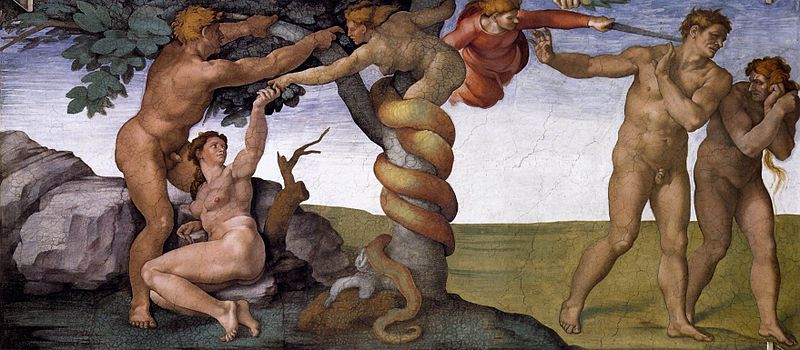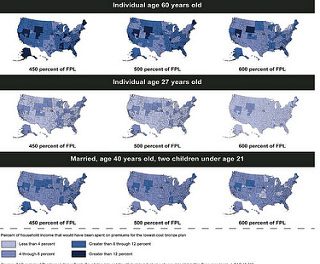Isaiah 66:10—14
Psalm 66
Galatians 6:14-18
Luke 10:1-12, 17-20
The climactic image of the Christian faith is an open entryway. The women who seek to care for Jesus’ body after his death encounter an open tomb, with its stone seal rolled away; and upon crossing the threshold they behold the key fact upon which the power of the gospel rests: “He is not here.” The whole of our salvation is in some sense encapsulated by that open entryway: the death which separates us from this world and from those we love is unable to separate us from the love of God in Christ Jesus. “By death, He has trampled upon death.” Or, more simply: “love wins.” The love that has defeated death makes itself known to humanity by means of an “open door,” which invites those who encounter it to cross the threshold and to discover that the dominion of the powers of this world is not indefinite in scope. In the open, empty tomb Christians come to see that the power of those social forces that enslave us with fear is not absolute. We need no longer accept the limitations on our lives which these forces impose upon us. Embracing this truth is, of course, a source of great liberation and peace; yet it is also an incredibly dangerous and divisive course of action.
The first reading for this Sunday presents us with an image of deep comfort and joy. The prophet invites us to rejoice and exult over Jerusalem, which the Lord will raise up from desolation to prosperity. Jerusalem will carry the faithful in her arms, nourishing and consoling them like a mother with her child. “Oh, that you may suck fully of the milk of her comfort,” he says, “that you may nurse with delight at her abundant breasts!” Religious believers, and Christians in particular, often take this metaphor as the governing image for the life of faith: God is primarily a source of nourishment and consolation in a dangerous and alienating world. There may be some truth to that idea, but if we regard for only a moment the history of the very city to which the prophet refers in this passage, we see that the sort of consolation found in God’s Kingdom is one that goes hand in hand with an extraordinary amount of vulnerability and suffering.
In an episode of his radio show “Entitled Opinions” from December 2008, Robert Pogue Harrison opens his remarkable interview with Matthew Farley, sj with this seemingly erudite reflection on Jesus’ resurrection:
Hic non est: he is not here. There is nothing left of Jesus here except the sign of his elsewhereness. There is a fundamental analogy, therefore, between the tomb and the scene of history, both of which Jesus has disappeared from, leaving behind a sepulchral promise that belongs the futurity of hope rather than to the aftermath of grief. The radical question posed by Christian faith is, ‘what do we make of this “here,” this hic that has now been evacuated?’ How do we inhabit its promise? What meaning does it have for us? What ethical obligations does it impose on us?’
By Harrison’s own admission, this way of thinking about the Christ event ultimately aims at keeping God as far away from the world as possible, thereby granting humanity the space in which it can most fully express its own freedom and identity. This “new creation” inaugurated by the resurrection is defined by God’s “elsewhereness”—by God’s final emancipation of the human race after a long and bloody history of interaction and intervention. Although this reading of the gospel could not be further from what the body of Christ has taken the true meaning of the resurrection to be, it is often the form that Christian discipleship has taken in many of our lives.
The good news is that God has taken care of things for us so that we can live out our own lives in peace and comfort, with the assurance that God will no longer show up on the scene and meddle with our lives. It is our job to determine the meaning of the hic, the presence that has now been evacuated, and then to impose upon ourselves those obligations we deem consistent with this meaning. What an ideal set-up for the work of the modern theologian! And most especially the modern ethicist! The God who once walked among us has now exited the scene and passed off his old responsibilities to us! We must now establish God’s kingdom for each new era by determining for ourselves what is most conducive to the peace, comfort and prosperity we all crave. Such a view has the appearance of openness, but in reality it is the product of one who has closed oneself off from God. As Pope Francis (then Cardinal Bergoglio) remarked in an address marking the beginning of this Year of Faith:
The closed door is really a symbol of our day. It is something more than a simple sociological fact; it is an existential reality that is imposing itself as a way of life, a way of confronting reality, others and the future. The bolted door of my house, the place of my intimate life, my dreams, hopes, sufferings and moments of happiness, is locked against others. And it is not simply a matter of the physical house; it is also the whole area of my life, of my heart. All the time there are fewer who can cross that threshold. The security of reinforced doors protects the insecurity of a life which is becoming more fragile and less open to the riches of the life and the love of others… While the doors of the houses are closed, the doors of the shopping malls are always open.
Perhaps the strongest antidote to this “closed” view of our relation to God and one another is St. Paul. How so? In the third reading for this week, St. Paul proclaims to the church in Galatia that he boasts in one thing only: “the cross of our Lord Jesus Christ, through which the world has been crucified to me, and I to the world.” How is that an expression of openness, one might rightly ask. Whatever else he is doing, St. Paul is speaking autobiographically here (as he so often does). When we consider St. Paul’s life, along with his exhortation to “imitate me, even as I imitate Christ,” we begin to see the degree of self-abandonment that he lives out, and that expects of those who follow Jesus alongside him. For to imitate Paul means not only to commit oneself to a life of fervent evangelization; it also implies that one remains continuously open to God’s direct intervention in one’s own life.
If anything consistently characterizes the life of St. Paul, it is that he is always in the “grip” of God’s directives for his life. His conversion does not mark a transition from duplicity to authenticity as much as it marks a drastic change in the trajectory of his all-consuming faith. St. Paul shows us, perhaps more consistently than any other New Testament figure, what vulnerability to God looks like. St. Paul’s life is itself an open door to God’s continuously active (some might say hyper-active) presence in the world, and thus it is through him that the “door of faith” is opened to the Gentiles (Acts 14:27). There can be little doubt that he pays the price for such vulnerability (cf. 2 Corinthians 11). Yet it is precisely through the “marks of Jesus on his body” that he mediates God’s ongoing presence in the world. What is of greatest significance, however, is that this presence is not something that St. Paul has constructed and put forth by his own power, to “fill the void” left behind by Jesus’ departure. It is really God himself—the Holy Spirit—at work in Paul.
St. Paul is thus the living embodiment of the sort of discipleship described by the gospel passage for this week. In it we find a detailed set instructions based on the astonishing principle articulated in John 17:18: “as you have sent me into the world, so I have sent them into the world.” Those who follow Jesus regard themselves as “sent ones” just as Jesus fundamentally understood himself to be the one “sent by the Father”. In other words, the Christian journey begins with an open door: one that leads from the safety of one’s home out into the wider world. Jesus sends out these emissaries by twos, meaning that none of his followers are required to walk through that open door alone. We are all meant to be accompanied by others on this journey. All the same, there are precious few promises of security and comfort. “I am sending you like lambs among wolves,” Jesus says. “Carry no money bag, no sack, no sandals; and greet no one along the way.”
Just as the beginning of the journey is marked by an open door, so is its destination. “Into whatever house you enter, first say, ‘Peace to this household.’ If a peaceful person lives there, your peace will rest on him; but if not, it will return to you.” Here is the paradox of Christian discipleship on full display: the one sent out into the world is entirely dependent upon the care and hospitality of others, and yet it is they who have true peace to bestow. Jesus by no means denies the bodily necessities of life here—shelter, food, clothing—but it is precisely in divesting oneself of these necessities and relying upon others to provide them that the Kingdom of God manifests itself here and now. Nor does Jesus deny the possibility of rejection and abandonment here: the disciples are told to shake off the very dust of those towns that reject their ministry. Jesus comes to these towns in the poverty and openness of these messengers, who present the people in those towns with the choice of opening or closing the door. Salvation is at stake in this choice, for what lies on the other side of that door is nothing other Christ himself, in whom they can find true healing. As Pope Francis put it:
One passes through the door of faith, one crosses that threshold, when the Word of God is announced and the heart allows itself to be shaped by that grace which transforms. A grace which has a concrete name, and that name is Jesus. Jesus is the door. (John 10:9). He, and only He, is and will always be the door. No one goes to the Father except through Him. (John 14.6). If there is no Christ, there is no way to God. As the door, He opens the way to God and as Good Shepherd he is the Only One who looks after us at the price of his own life.
The portrait of the Kingdom of God that emerges here is anything but that of a corporate coping mechanism. It is rather an invitation not only to open the door to Christ, but to be an open door through which Christ can enter the world. We are called by the empty tomb to become empty ourselves, so others may know the surpassing power of our Creator and Redeemer, and the everlasting peace of Israel’s God.





Trackbacks/Pingbacks